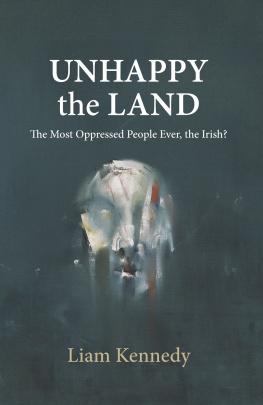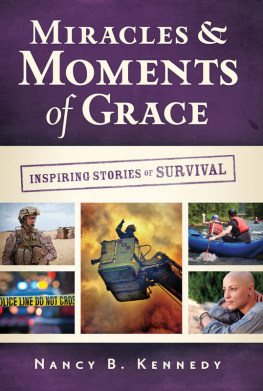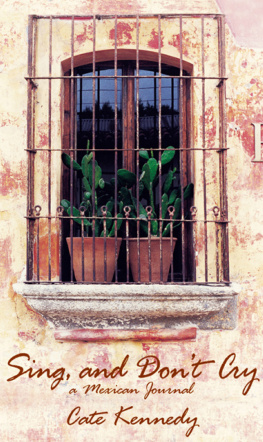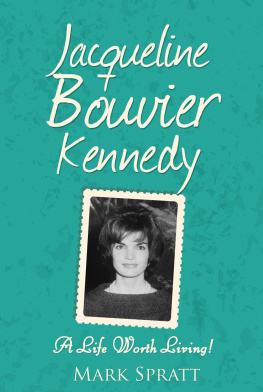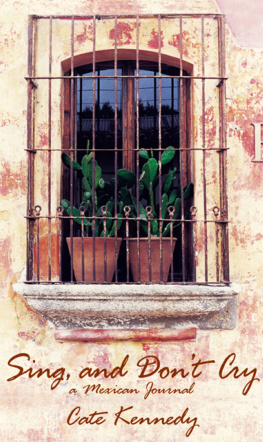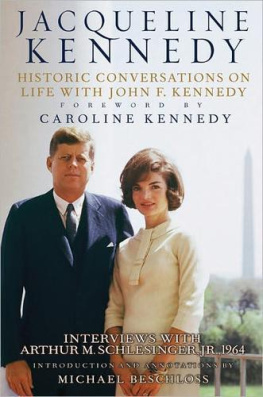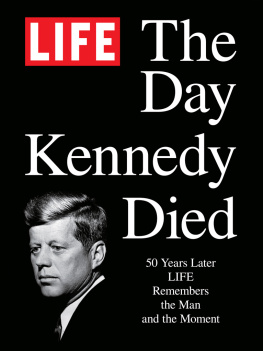Dark Roots
For Louise Thurtell and Peter Bishop,
both of whom refuse to believe that
the short story is an endangered species
DARK ROOTS
CATE KENNEDY

Copyright 2006 by Cate Kennedy
All rights reserved. No part of this book may be reproduced in any form or
by any electronic or mechanical means, or the facilitation thereof,
including information storage and retrieval systems, without permission in
writing from the publisher, except by a reviewer, who may quote brief
passages in a review. Any members of educational institutions wishing to
photocopy part or all of the work for classroom use, or publishers who
would like to obtain permission to include the work in an anthology,
should send their inquiries to Grove/Atlantic, Inc.,
841 Broadway, New York, NY 10003.
First Published in Australia in 2006 by Scribe Publications Pty Ltd
Published simultaneously in Canada
Printed in the United States of America
ISBN-10: 0-8021-7045-5
ISBN-13: 978-0-8021-7045-3
Black Cat
a paperback original imprint of Grove/Atlantic, Inc.
841 Broadway
New York, NY 10003
Distributed by Publishers Group West
www.groveatlantic.com
08 09 10 11 12 10 9 8 7 6 5 4 3 2 1
Contents
There is some secret grief here I need to declare,
and my fingers itch for a pencil.
Barbara Kingsolver
What Thou and I Did, Till We Loved
Every day I go to get off at the wrong floor. I keep forgetting. Shes in rehab now. Theyve given her six weeks in here, to assess progress, testing all the reflexes and how hard her hands can squeeze. After that, well, well have to see, they say. They mean moving her to a permanent residential facility. Those are the actual words they use; they are good at jargon, of course; that is their job.
I think your reaction is a little emotive and inappropriate, they say; or, Were trying to find the most constructive way forward for patient recovery.
I sit next to Beths bed and think up jargon for her, whispering.
Would you care to listen to your mobile melody-generating headset device? I say, holding her Walkman near her ear, watching her eyes.
Can you indicate if you would like a drink from your cold-beverage receptacle? I persist, although of course she cannot sip and swallow, liquids trickle into her body via a tube. Watching her mouth for some flicker of a smile, of recognition. Some days her eyes are open, sometimes not. It is inappropriate, they tell me, to use the term awake on the occasions she opens her eyes. Some other brain activity is occurring. There is no fevered one-blink-for-yes-two-blinks-for-no or finger-jabbing at letters on a newspaper page. There is nothing but this.
I talk, talk, talk. On bad days I believe them, because if she were sentient those eyes would be flashing out messages like a lighthouse: SOS. Shipwreck. There would not be this slow breathing, but tears of frustration, the hand she can move would flail the air, grab for something. Instead she is like a body relieved of its burden of energy, suspended. All seven patients in this room lie like islands, and whatever is shifting is deep under the surface. I check her charts, see what theyve been subjecting her to in rehabneedles in the feet and hands, maybe, flashlight in the eyes. I dont know. Nil by mouth is what it says, which is the truth. Nothing going in. Nothing coming out.
That first day in intensive care when Id arrived, one of the staff had asked if I was next-of-kin and Id taken a shuddering breath and craned over her shoulder where I could see Beths bag and shoes next to the bed and her head inconceivably, impossibly, angled into that brace. They had her shopping bag there, everything in it intact. And jammed in the top, a bunch of flowers shed been holding when the taxi hit her. Theyd been six hours out of water and looking at them I glimpsed things as they would be from now on. The diodes pinching, monitoring, and the new glittery, chromium, machine-fed rules of helplessness. And my mouth waited to set this horror in motion, and I opened it and said: sister, yes, her sister. I would have said anything.
I get here around 8.30 a.m. Link fingers in Beths, tell her about my trip down, the news Id heard on the radio, anything. Such luxuriant amounts of time in this room; it stretches and balloons like molten glass.
Each day, stepping blindly out of chaos. I have left my catering business in an uproar, gathered up the mail and dumped it in the top drawer, ignored the calls waiting on the answering machine.
Usually at this time of the morning I am selecting asparagus or stuffing capsicums, faxing the client to check how many vegetarians I should expect. We stack the random CD player and the industrial kitchen starts pumping. Nowadays it pumps in an entirely different way, like an artery losing blood, with my friend David the chef trying to instruct the two trainees from the employment service to hold things together, the three of them hapless as failing tourniquets. My business has fading vital signs; it is anaemic with lost clientele and drastically slipped standards. I, the chief surgeon, am standing gravely by, stripping off my rubber gloves.
When I press the stored number in the mobile phone the auto-dial sounds like the manic music before a cartoon. David and the trainees never answer. My own voice on the voicemail greets me, cheery as a head waiter covering up the bedlam behind the swinging doors. I try again, holding the handset against my sweater so I dont have to hear that inane little loony tunes series of chirps. On with the show, this is it.
It was how I met Beth, actually, through catering. A university function, in the days when you couldnt move in the food business without falling over a tray of sushi. Moroccan lamb was what I served that day, rice with preserved lemons, semolina cake. Big, satisfying carbohydrates. Id left the faculty conference and wandered past a lecture theatre. She was up on the podium, reading poetry. To a roomful of restless undergraduates, who were doodling on their handouts and eyeing the clock. I stood there leaning against the door, thinking that the Dean could serve his own cake.
Look over here, says the physio, and she snaps her fingers, watching Beths eyes, which are gazing up at the ceiling. A ponderous, slow-motion blink. I will the eyes to turn to meet the physios snapping, to have them snap back angrily, absolutely alert. I imagine Beth saying, Yes, what? in that impatient way she has when she is focused on something else, imagine the physio staggering backwards in shock.
Another blink, a kind of sigh. I bend my head near. Sometimes Beths mouth forms a meandering string of vowels, slippery as water in a creek, the consonants that would make them words buried in that sleeping tongue.
The first time it had happened was after a big mob of friends came in, back in the other room, and wed all stood joking around her bed, behaving as if we were all standing round at a party but that Beth was engaged in some obscure performance piece of her own secret devising. We needed to out-act her.
We brushed her hair and burned aromatherapy oils and turned her hands over in our own, and when visiting hours were finished and they had left, Beth spoke, very softly, and from far away, the clotted remnants of two words: no more.
Now the physio goes back to folding her arms as I bend to Beths cheek and hear the breathy vowel, deadened, exhaled. Is it no? Or is it
Next page






